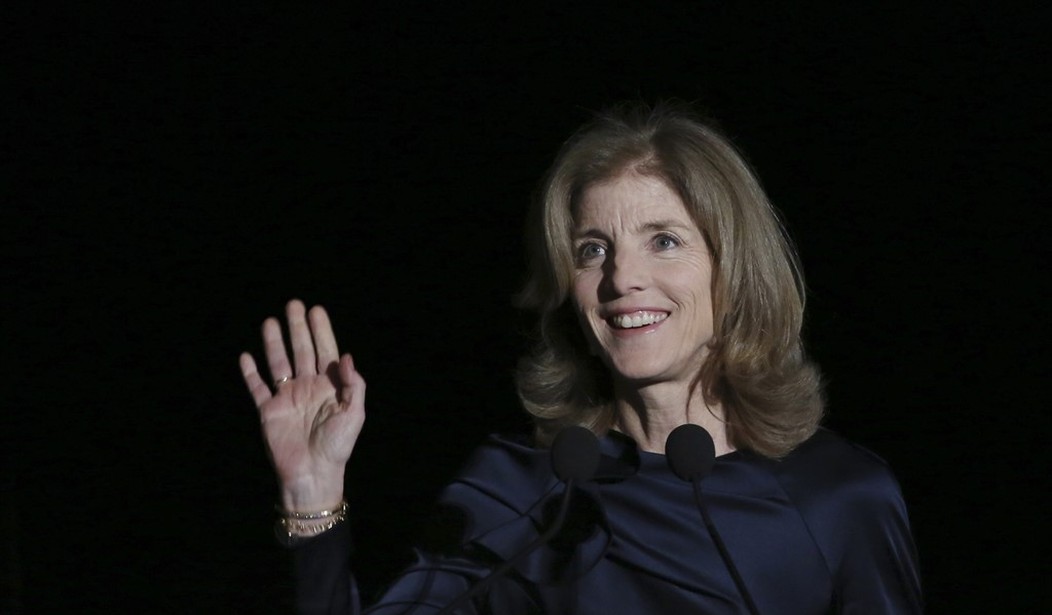President Ronald Reagan said: "I didn't leave the Democratic Party. The party left me." Actor and former president of the National Rifle Association Charlton Heston, who called himself a "Kennedy Democrat," switched to the Republican Party after the 1960s.
On racial preferences, JFK, in 1963, said he opposed them: "I don't think that is the generally held view, at least as I understand it, of the Negro community, that there is some compensation due for the lost years, particularly in the field of education. What I think they would like is to see their children well-educated so that they could hold jobs and have their children accepted and have themselves accepted as equal members of the community. So I don't think we can undo the past. In fact, the past is going to be with us for a good many years in uneducated men and women who lost their chance for a decent education. We have to do the best we can now. That is what we are trying to do. I don't think quotas are a good idea. I think it is a mistake to begin to assign quotas on the basis of religion or race or color, or nationality.
"I think we get into a good deal of trouble. Our whole view of ourselves is a sort of one society. That has not been true. At least that is where we are trying to go. I think that we ought not to begin the quota system. On the other hand, I do think that we ought to make an effort to give a fair chance to everyone who is qualified, not through a quota, but just look over our employment rolls, look over our areas where we are hiring people, and at least make sure we are giving everyone a fair chance, but not hard-and-fast quotas. We are too mixed, this society of ours, to begin to divide ourselves on the basis of race or color."
Recommended
On tax cuts, in a 1962 speech Kennedy said: "It is a paradoxical truth that tax rates are too high today and tax revenues are too low, and the soundest way to raise the revenues in the long run is to cut the rates now. ... The purpose of cutting taxes now is not to incur a budget deficit but to achieve the more prosperous, expanding economy, which can bring a budget surplus."
On dealing with foreign enemies, JFK believed, as Reagan did, in peace through strength, not strength through peace. In his inaugural address, Kennedy said, "Let every nation know, whether it wishes us well or ill, that we shall pay any price, bear any burden, meet any hardship, support any friend, oppose any foe to assure the survival and the success of liberty."
On the Second Amendment, this lifetime member of the NRA believed it conferred an individual right to keep and bear arms. In 1961, Kennedy said: "Today we need a nation of minutemen: citizens who are not only prepared to take up arms, but citizens who regard the preservation of freedom as a basic purpose of their daily life and who are willing to consciously work and sacrifice for that freedom. The cause of liberty, the cause of America, cannot succeed with any lesser effort."
Abortion was not an issue during the 1960 presidential campaign. Nor was it an issue during his presidency. Kennedy did say this: "Now, on the question of limiting population: As you know, the Japanese have been doing it very vigorously, through abortion, which I think would be repugnant to all Americans."
In 1971, in a letter to a constituent, John Kennedy's brother, Sen. Ted Kennedy, wrote: "It is my personal feeling that the legalization of abortion on demand is not in accordance with the value which our civilization places on human life. Wanted or unwanted, I believe that human life, even at its earliest stages, has certain rights which must be recognized -- the right to be born, the right to love, the right to grow old. ... Once life has begun, no matter at what stage of growth, it is my belief that termination should not be decided merely by desire."
On guns, taxes, racial preferences, foreign policy and abortion, John F. Kennedy would not be comfortable in today's Democratic Party. He was, after all, a Kennedy Democrat.

























Join the conversation as a VIP Member